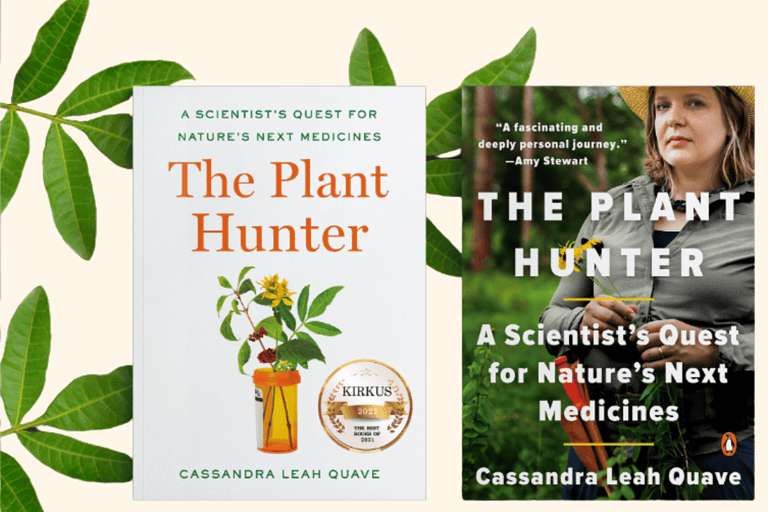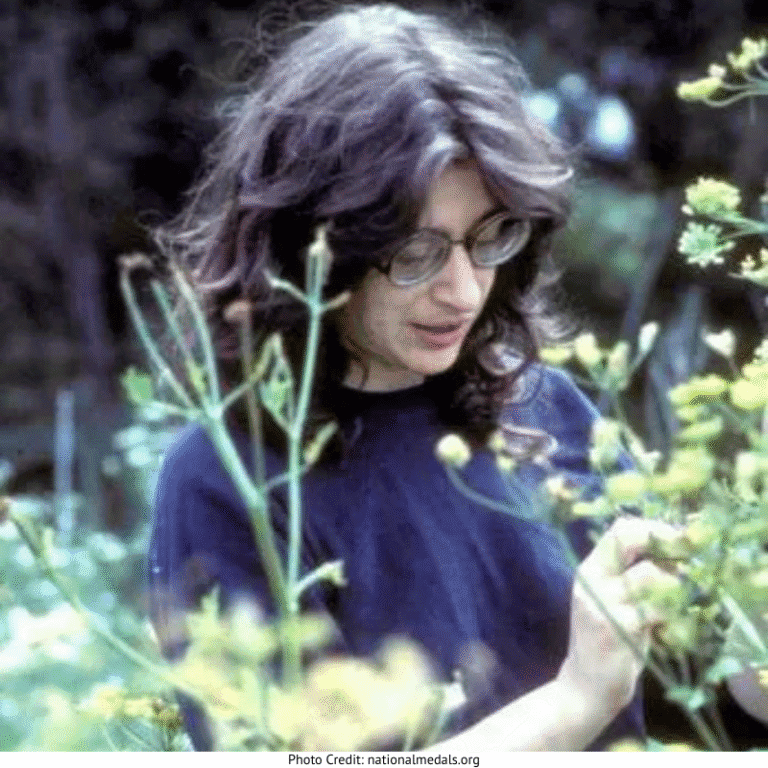Scientist Spotlight: Dr. Cassandra Quave

This month’s Scientist Spotlight: Dr. Cassandra Quave, who is a Botanist!
When Dr. Cassandra Quave enters a forest, she doesn’t just see trees and flowers – she sees potential medicines waiting to be discovered. As a leading ethnobotanist, she combines traditional knowledge about plant remedies with cutting-edge science to find new ways to fight disease. Her work bridging ancient plant wisdom with modern medical challenges has positioned her at the forefront of the search for solutions to antibiotic resistance, one of today’s most pressing health threats.
Known for her resilience and determination, Dr. Quave has overcome personal challenges to become a pioneering researcher whose work spans continents and cultures. Her discoveries from plants like the European chestnut are opening new pathways to combat dangerous antibiotic-resistant bacteria, potentially saving countless lives in the process.
What is a Botanist?

A botanist is a scientist who specializes in studying plants. The term comes from the Greek word “botanikos,” meaning “of herbs” or “of plants.”
Botanists study all aspects of plant life, including their structure, growth, reproduction, metabolism, development, diseases, and evolutionary relationships. Their work can range from exploring plant diversity in tropical rainforests to understanding how plants respond to climate change or developing new medicines from plant compounds.
Dr. Cassandra Quave
Today we would like to highlight a leader in the field of ethnobotany and medicinal plant research.
Dr. Cassandra Quave has dedicated her life to studying how plants can help fight disease, particularly focusing on finding new ways to combat antibiotic-resistant bacteria. Her unique approach combines traditional knowledge of medicinal plants with modern scientific techniques to discover compounds that work differently than conventional antibiotics.

Scientist Profile
- Name: Dr. Cassandra Quave
- Field: Ethnobotany and medicinal plant research
- Education:
- Ph.D. in Biology with focus on ethnobotany from Florida International University
- Bachelor’s degree in Biology and Anthropology from Emory University
- Early life and inspiration:
- Cassandra Quave grew up with a congenital condition that led to the amputation of her right leg below the knee as a child. This experience helped shape her resilience and determination. “I never set out to become an ethnobotanist,” Dr. Quave often shares. “I was pre-med with plans to become a surgeon.” Her path changed during an undergraduate research experience in the Amazon rainforest, where she witnessed indigenous communities using local plants for medicine and recognized the untapped potential of these botanical remedies.
Notable Works and Achievements
Major Contributions
- Identified compounds from the European chestnut that can disarm MRSA (a dangerous antibiotic-resistant bacteria) without killing it, potentially avoiding the problem of developing resistance
- Published over 100 scientific papers on medicinal plants and their compounds
- Established a massive extract library containing thousands of plant samples for testing against pathogens
- Co-founded PhytoTEK LLC, a drug discovery company focused on plant-based solutions to antibiotic resistance
- Authored “The Plant Hunter: A Scientist’s Quest for Nature’s Next Medicines,” a memoir about her research journey
Awards and Honors:
- Received prestigious grants from the National Institutes of Health and Department of Defense
- Serves as Curator of the Emory Herbarium
- Leads the Quave Research Group at Emory University
- Created the first free online Botanical Medicine course available to the public
- Named among the “Women Who Shape Science” by the National Geographic Society

Impact on the Field
Relevance:
Dr. Quave’s work has transformed how scientists approach antibiotic resistance. Rather than following the conventional path of finding compounds that kill bacteria directly, she searches for substances that disrupt bacterial communication or disable their ability to cause disease. This novel approach may help overcome the cycle of resistance that has rendered many antibiotics ineffective.
Legacy:
Beyond her scientific discoveries, Dr. Quave has become an important voice for preserving both biodiversity and cultural knowledge about plants. Her fieldwork documenting traditional remedies helps preserve generations of botanical wisdom that might otherwise be lost. By demonstrating the medical value of these traditions, she makes a powerful case for habitat conservation and the protection of indigenous knowledge.
Personal Insights
Challenges Overcome:
After earning her PhD, Dr. Quave faced significant obstacles getting funding for her unconventional approach to antibiotic research. “Many colleagues thought looking at traditional plant remedies was outdated,” she explains. “But I believed these plants held secrets that could help address modern medical problems.” Her persistence eventually paid off, and her lab now leads the field in discovering plant compounds that work differently than conventional antibiotics.
Her personal experience with disability has also informed her perspective. “Living with a disability taught me to be creative in solving problems,” she has noted in interviews. “That same creativity helps me see potential in plants that others might overlook.”
“Get comfortable being uncomfortable. Whether you’re hiking through thorny brush to collect plants, learning a new language to interview traditional healers, or mastering complex laboratory techniques, this field demands versatility and perseverance.”
– Dr. Cassandra Quave’s advice to aspiring botanists
“The plants that heal us have been right under our noses all along. We just need to remember how to see them.”
– Dr. Cassandra Quave
Dr. Cassandra Quave represents the exciting future of botanical medicine research. By bridging traditional knowledge with modern science, she’s uncovering plant compounds that could help solve one of healthcare’s most pressing challenges. Her work reminds us that sometimes ancient wisdom contains the seeds of solutions to our most modern problems.
Her career demonstrates the value of interdisciplinary thinking and the importance of preserving both biological and cultural diversity. For aspiring scientists interested in plant science, Dr. Quave offers an inspiring example of how curiosity, persistence, and openness to different ways of knowing can lead to groundbreaking discoveries.
For those interested in learning more about medicinal plants, check out Dr. Quave’s free online Botanical Medicine course or her memoir, “The Plant Hunter,” which details her journey from curious student to pioneering researcher.






